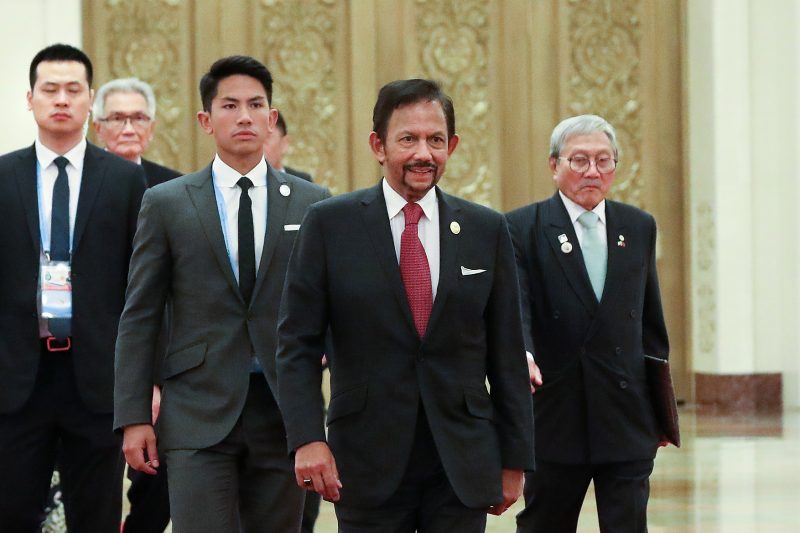Brunei says death penalty moratorium to cover sharia laws
Sultan Hassanal Bolkiah’s remarks on capital punishment appeared aimed at assuaging worldwide criticism (Andrea VERDELLI)
Bandar Seri Begawan (Brunei) (AFP) – Brunei’s sultan said Sunday a moratorium on capital punishment will also extend to sharia laws that include stoning to death for gay sex and adultery, after a furious backlash against the punishments.
It was the first time Sultan Hassanal Bolkiah had commented publicly on the new penal code since it fully entered force last month, and his remarks appeared aimed at assuaging worldwide criticism.
The laws, which also include amputation of hands and feet for thieves in the tiny sultanate on Borneo island, sparked fury from celebrities, including actor George Clooney, the United Nations and rights groups.
In a televised speech ahead of the start of the Muslim holy month of Ramadan, the sultan said: “I am aware that there are many questions and misperceptions with regard to the implementation of the (sharia penal code).”
“There should not be any concern on the sharia law as it is full of Allah’s mercy and blessings,” he said, according to an official translation of his address.
“As evident for more than two decades, we have practised a de facto moratorium on the execution of death penalty for cases under the common law.
“This will also be applied to cases under the (sharia penal code), which provides a wider scope for remission.”
He also vowed Brunei would ratify the United Nations convention against torture which it signed several years ago.
Muslim-majority Brunei operates a dual-track legal system with civil courts operating alongside sharia courts that handle issues such as marital and inheritance cases.
Some crimes were already punishable with death by hanging under the civil code but Brunei has not executed anyone for decades, and the sultan’s comments suggest this will not change with the introduction of the new sharia laws.
Rape and robbery are also punishable by death under the sharia code and many of the new laws, such as capital punishment for insulting the Prophet Mohammed, apply to non-Muslims as well as Muslims.
The sultan — one of the world’s wealthiest men — announced plans for the sharia penal code in 2013.
The first section was introduced in 2014 and included less stringent penalties, such as fines or jail terms for offences including indecent behaviour or skipping Friday prayers.
But the introduction of the harsher punishments in the former British protectorate of about 400,000 people was repeatedly delayed after they sparked criticism.
Disclaimer: Validity of the above story is for 7 Days from original date of publishing. Source: AFP.


